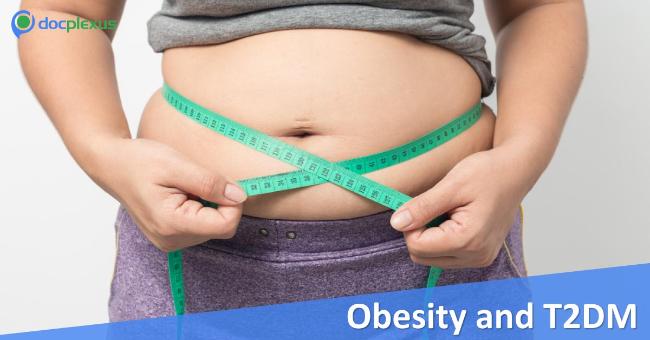
- Several food choices and lifestyle habits contribute to healthy weight management.
- Researchers are seeking to understand specific foods that may help people maintain an appropriate weight.
- A recent study found that regular consumption of apple cider vinegar may have several benefits, including reducing weight, body fat ratio, cholesterol, and blood glucose levels.
Maintaining a healthy weight can be challenging. People may utilize a number of strategies to assist with weight loss.
One such strategy of interest is the regular consumption of apple cider vinegar. Apple cider vinegar has many potential health benefits, and it is a highly popular item, used by consumers in foods and even in hair and skin routines.
A study published in BMJ Nutrition, Prevention & Health found that apple cider vinegar appeared to have weight management benefits among young adults with overweight or obesity.
Participants in the intervention group experienced a greater reduction weight, in waist-to-hip circumference, body mass index, and body fat ratio.
They also had lower blood sugar, triglyceride, and cholesterol readings. The results point to the potential benefits of apple cider vinegar in weight management.
Future research must confirm these findings and see how apple cider vinegar consumption may help individuals in other groups.
15 ml of apple cider vinegar a day may bring the most benefits
The study was a randomized, double-blind, placebo-controlled study that included Lebanese adolescents and young adults between the ages of 12 and 25. Participants were not on medications and did not have any chronic diseases.
Researchers recruited a total of 120 participants with overweight or obesity, and divided them into four groups. One group received the placebo, and the other three received a specific dose of apple cider vinegar — either 5, 10, or 15 milliliters (ml) diluted in water daily.
Other than this intervention, participants continued their normal diets and recorded what they ate.
Researchers collected data on body measurements and blood samples every 4 weeks. The study intervention lasted 12 weeks.
The study found that all amounts of apple cider vinegar improved weight components. Overall, all the intervention groups experienced weight, body mass index (BMI), waist-to-hip circumference, and body fat ratio reductions.
The intervention groups also had lower blood sugar, triglycerides, and total cholesterol levels, with the group receiving 15 ml of apple cider vinegar showing the greatest reductions.
The results did appear to be influenced by dose, with the group receiving the highest dose of apple cider vinegar showing the most significant reduction in weight and body mass index.
However, all intervention groups experienced similar reductions in waist-to-hip and body fat ratios. Participants did not experience any adverse or harmful effects because of the intervention.
The results point to a potential intervention to assist with weight loss. Study author Dr. Rony Abou-Khalil, head of the Biology Department at the Holy Spirit University of Kasik — Lebanon, explained to Medical News Today:
“The results of our study suggest that incorporating apple cider vinegar into the diet could be a beneficial adjunctive therapy for weight management in adolescents and young adults with overweight and obesity. Healthcare providers may consider recommending [apple cider vinegar] supplementation as part of a comprehensive weight loss program, alongside dietary and lifestyle modifications. However, further research is needed to confirm these findings and determine the optimal dosage and duration of [apple cider vinegar] supplementation.”
Adolescent bodies change: Would the findings apply to older adults?
The research did face certain limitations, which the authors acknowledge. Firstly, the researchers focused on a specific population, meaning we may not be able to generalize the results.
Secondly, study also only lasted 12 weeks, so future research could have a longer follow-up timeframe and include more participants.
Finally, some data relied on participants’ reports, which are not always precise. Blood sugar measurements involved looking at fasting blood sugar levels rather than an a1c testTrusted Source, so more research may be required to determine the long-term effect of apple cider vinegar on blood sugar.
Registered dietitian and nutritionist Karen Z. Berg, not involved in this research, commented on the findings for Medical News Today. According to her, this is “a strong study since it’s a double-blind placebo controlled study, and researchers nor participants knew which dose of [apple cider vinegar] they were taking.”
“To me the only negative of this study is the age group,” said Berg. “The ages of participants were 12–25 years […]. That is a very transformative time in one’s life, where the body is changing a lot, growth spurts are happening, and the metabolism functioning pretty quickly,” she cautioned.
“But since the placebo group and intervention group had similar ages, and they could compare people who got [apple cider vinegar] and the people who didn’t and saw no changes in the placebo group, that’s good to note,” Berg added.
Reflecing on potential areas for continued research, Dr. Abou-Khalil noted that “[f]uture research […] could investigate the mechanisms underlying the effects of [apple cider vinegar] on weight and metabolic health, explore potential differences in response to [apple cider vinegar] supplementation based on individual characteristics, such as age, gender, and baseline metabolic status, and assess the long-term safety and sustainability of [apple cider vinegar] use for weight management.”
“Additionally, studies comparing [apple cider vinegar] to other weight loss interventions or examining its efficacy in combination with other dietary supplements could provide valuable insights into its role in obesity management,” he said.
Why is managing weight important for health?
Maintaining a healthy weight is a critical component of well-being. It helps reduce the risk for certain chronic conditionsTrusted Source, such as high blood pressure and diabetes. People can seek to maintain a healthy weight by exercising regularly.
Diet is another critical component of weight management. People can follow certain dietary patternsTrusted Source that assist with weight loss, although effectiveness can vary. The focus is often on limiting calories and focusing on the type and quality of food consumed.
Kalyn True, a registered dietician with Memorial Hermann in Houston, TX, not involved in the current study, explained to MNT that “[w]eight management is important for a variety of reasons, including both physical and mental health benefits.”
According to her, this is because a healthy weight:
- “Reduces [the] risk of chronic diseases: Being overweight or obese increases the risk of developing many serious health conditions, such as heart disease, type 2 diabetes, stroke, some cancers, and sleep apnea. Maintaining a healthy weight can significantly lower risk of these diseases.
- Improves physical health: [Weight management] leads to increased energy levels, improved mobility and flexibility, and reduced stress on the joints.
- Boosts mental well-being: [It] can improve self-esteem and body image and reduce symptoms of depression and anxiety.
- Better overall quality of life: [People with a healthy body weight] find it easier to participate in physical activities and have more energy for work, family, and social activities.”
As for using apple cider vinegar for weight loss, Berg explained that, while it may bring some health benefits, we are still a long way off from confirming its potential as an alternative weight management aid.
“Apple cider vinegar is a type of vinegar that is made by fermenting apple juice,” Berg said, pointing out its “natural ingredient” appeal.
“Apple cider vinegar has long been thought to help with weight loss and digestion, but research in humans has not been strong enough to make definite correlations or recommendations,” she cautioned.
